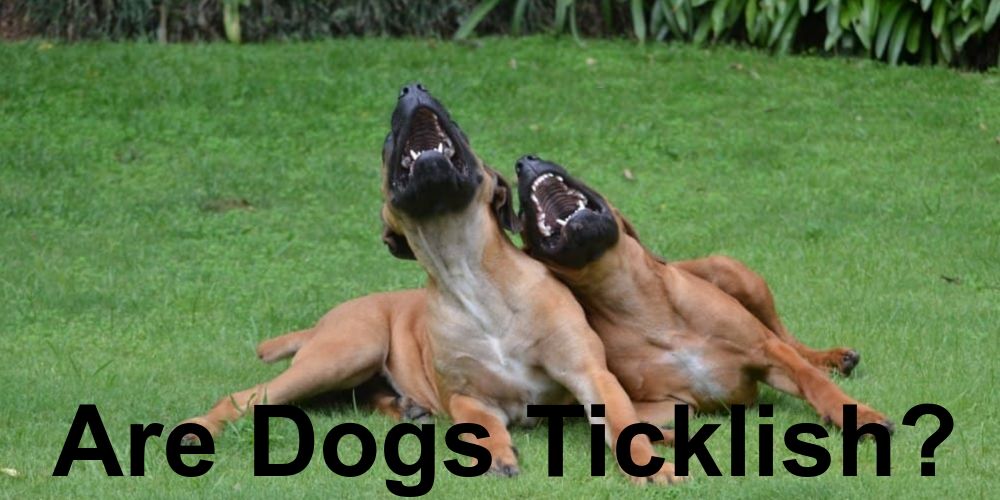
Tickle Me Please!
Have you ever seen a dog approach you, simply lie down, and then expose his belly? That means something, right? He desires a belly rub. You’ve undoubtedly already seen that he makes an attempt to kick his legs into the air. He sometimes even makes a gentle attempt to kick your hands, but he still craves your company. After all, he only needs to stand up to stop you from rubbing him.
Could this be their way of expressing how much they appreciate what we do? Many dog owners may believe that this is their pooch’s covert way of saying, “Hooman, it tickles me!” But do dogs actually like to tickle? Do they experience the tickling like we do? The most crucial question is: Will tickling your dog make you two friends? Just a few of the intriguing questions we’ll be addressing today are the ones listed above.
Are Dogs Ticklish?
The act of tickling humans is somewhat mysterious. Why else would you feel the want to tickle someone else when you are unable to tickle yourself? Why do we laugh when we are being tickled when we are aware that it is not amusing? Why do some people have more ticklish areas than others?
And it is precisely the reason why some specialists attempt to define what a tickling sensation is. Psychologists Arthur Allin and G. Stanley Hall are two of these specialists. They suggested two different tickling experiences. The knismesis is the first. The slight tickling sensation is what makes us shiver. The second is the gargalesis, a painful tickling sensation that makes us laugh hysterically.
The answer is that it depends on how you define the word “ticklesh.” Certainly, dogs and other mammals go through knismesis. They employ knismesis to defend themselves against parasites and everything that comes into contact with light on their skin. On the other hand, it’s possible that dogs don’t experience gargalesis, the ticklish sensation that makes us chuckle. Gorillas and primates both exhibit gargalesis more frequently. There is currently insufficient proof that dogs suffer from gargalesis.
But I Saw My Dog Laugh?
Well, some dog owners might counter that they are positive they have occasionally witnessed their dog’s laughter. Yes, that may be accurate, but it may not be funny. The “laugh” is typically only a breathy breathing sound. Because this “dog chuckle” is frequently heard when dogs are playing and having a good time, it differs from the typical panting sound. Therefore, it is more probable that your dog is laughing playfully when you see them, which shows they are having fun.
Dogs may or may not be ticklish, but there is no disputing the fact that they respond to our touch. Every dog has one or more areas on their body that, when touched, seem to drive the dog slightly crazy. If you’re brave enough to scratch that spot, you’ll soon be able to see some of his cute but humorous reactions! One of these is the well-known “scratch reflex” or leg kick. Others who are tickled or rubbed may put their tongue out or even roll their eyes back. After being petted, dogs frequently shake their bodies to get rid of their cold.
Finding The Spot
Do you want to tickle your dog but are unsure of where to start? Are you curious to see how your dog responds? We have some strategies for you! You can first examine his body with your hands while keeping an eye out for any signs, including twitching. Different canines exhibit diverse behaviours. Some dogs could whine, while others might push their hands against yours to want more. If that didn’t work, all you have to do is watch him scratch himself. The chest, neck, region behind the ears, and the abdomen are a few of the magical locations.
Dogs don’t laugh or run away when they are tickled like people do. However, it can be a sign of their discomfort if they finally try to stop you from what you’re doing. The secret is to be gentle. A prolonged scratching should be avoided. If your dog continues to scratch a certain area after playtime, he may have skin irritation. The best course of action is to see a doctor if it continues. Don’t go overboard. Similar to people, tickling is not always acceptable. When your dog starts to feel apprehensive, switch to your next loving act!
Conclusion
Therefore, are dogs ticklish? According to scientists, they do not like being tickled in the same manner that humans do. This does not alter the fact that your dog enjoys belly rubs and gets thrilled whenever you touch him, though. Whether your dog likes to be tickled or not, playing and snuggling with him will do a lot for his pleasure and sense of connection to you.

